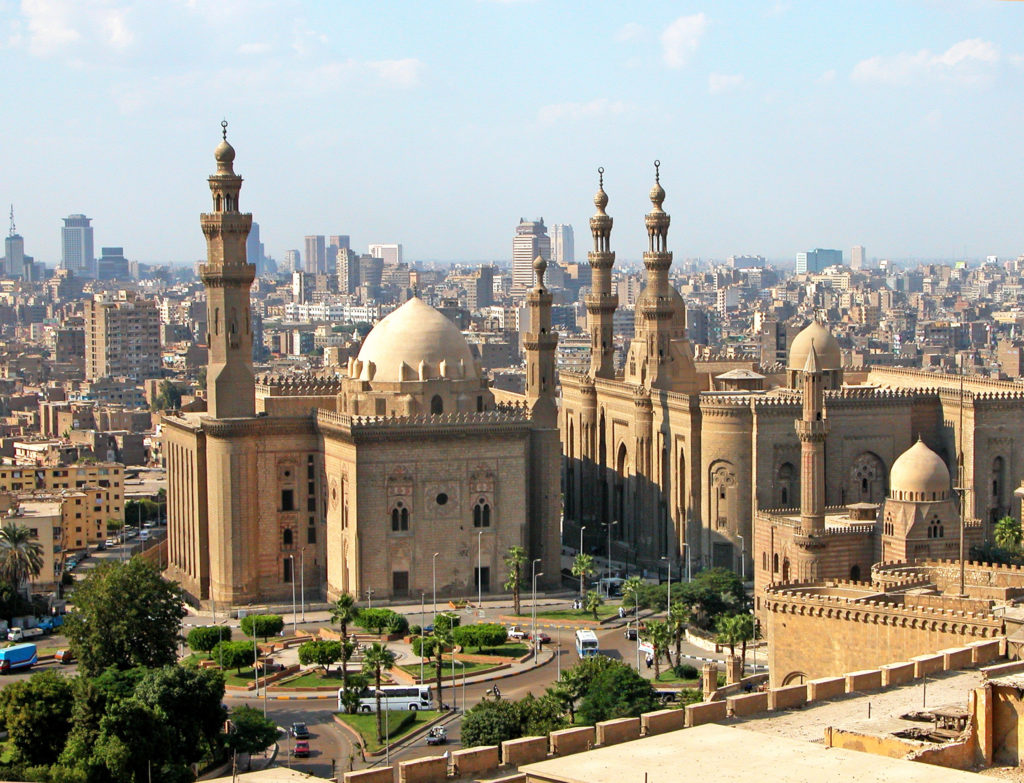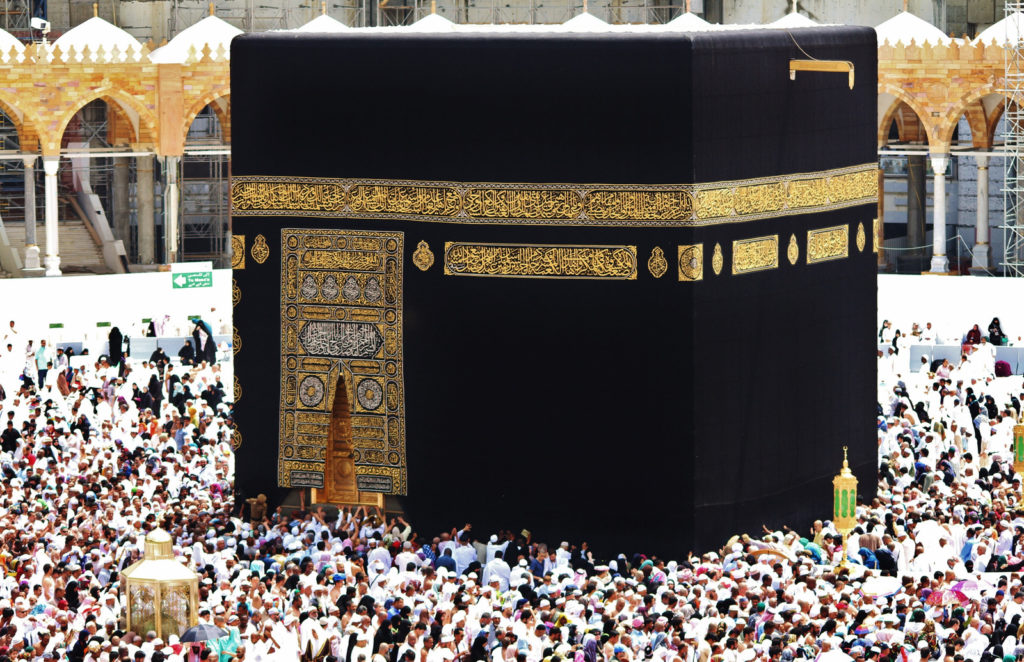Definition
It is an Abrahamic, monotheistic religion teaching that there is only one God (Allah) and that Muhammad is a messenger of Allah. It is the world’s second-largest religion with over 2 billion followers which represents 24.5% spread all over the world, the Islamic community is known as Muslims. They composed a majority of the population in 50 countries across the world . Islam teaches that God is the most merciful and the most gracious, all-powerful, and unique, and has directed humankind through prophets in a different era. revealed scriptures and natural marks. The primary scriptures of Islam are the Quran, believed to be the words of God, and the teachings and normative examples (called the sunnah, composed of aphorisms called hadith) of Prophet Muhammad(PBUH).
Click Here For a Free Trial

Muslims believe that Islam is the complete and universal version of a primitive faith that was revealed many times before through prophets including Adam, Abraham, Moses, and Jesus, and the Quran in its Arabic to be the unchanged and final revelation of Words of God. Like other Abrahamic religions, Islam also teaches a final resurrection day with the righteous rewarded in paradise and unrighteous punished burned in hell. Religious concepts and practices include the Five Cornerstones of Islam, which are obligatory acts of worship, and following Islamic law (sharia), which touches on virtually every aspect of life and society, from the simplest prospects of life and welfare to women and the environment. The cities of Mecca, Medina and Jerusalem are home to the three holiest sites in Islam.
Aside from the theological narrative, Islam is historically believed to have originated in Mecca, and by the 8th century, the Umayyad Caliphate extended from Iberia in the west to the Indus River in the east. The Islamic Golden Age refers to the period traditionally dated from the 8th century to the 13th century, during the Abbasid Caliphate, when much of the historically Muslim world was experiencing a scientific, economic and cultural flourishing .this era is fully expressed by a civilized renaissance in all Islamic territories. The expansion of the Muslim world involved various states and ancestries such as the Ottoman Empire, trade and conversion to Islam by missionary activities (dawah).
Faith( iman)
Faith (Iman) in the Islamic creed (Aqidah) is often represented as the six articles of faith, notably spelled out in the Hadith of Gabriel.
Islam is often seen as having the simplest credo of the major religions. Its most fundamental concept is a rigorous monotheism, called tawhid. God is described in chapter 112 of the Quran as: “Say, He is God, the One and Only; God, the Eternal, Absolute; He begetteth not, nor is He begotten; And there is none like unto Him” (112:1–4).] Islam rejects poly gods and pluralism. This is, called Shirk, and rejects the Christian doctrine of the Trinity. In Islam, God is beyond all comprehension and thus Muslims are not expected to believe in except the only God .] God is described and referred to by certain names or attributes, the most common being Al-Rahmān, meaning “The Compassionate” and Al-Rahīm, meaning “The Merciful”.
Islam teaches that the creation of everything in the universe was brought into being by God’s command as expressed by the verse, “Be, and it is” and that the purpose of existence is to worship or to know God. He is viewed as a personal god who responds whenever a person in need or distress calls him and pray for him directly, There are no intermediaries, such as priests, to contact God who states, “I am nearer to him than (his) jugular vein.” God-consciousness is referred to as Taqwa.
Allah is traditionally seen as the personal name of God, a term with no plural or gender being ascribed, and used by Muslims and Arabic-speaking Christians and Jews in reference to God, while ʾilāh is a term used for a deity or a god in general.
Acts of worship
There is five fundamental religious basis in Islam, collectively known as ‘The Pillars of Islam’ (arkan al-Islam; also arkan ad-din, “pillars of religion”), which are considered mandatory for all believers. The Quran presents them as a framework for worship and a sign of commitment to the faith. They are (1) the creed (Shahada), (2) daily prayers (Salah), (3) almsgiving (Zakat), (4) fasting during Ramadan (Sawm) and (5) the pilgrimage to Mecca (Hajj) at least once in a lifetime. Both Shia and Sunni sects agree on the essential details for the performance of these acts. Apart from these, Muslims also perform other religious acts. Notable among them are charity (Sadaqah) and recitation.
Testimony
The Shahadah, which is the basic creed of Islam that must be recited under oath with the specific statement: ” ashadu al-la ilaha illa-llahu wa ashadu anna muhammadan rasulu-llah”, or “I testify that there is no god but God, Muhammad is the messenger of God” This testament is a foundation for all other beliefs and practices in Islam. must repeat the shahadah in prayer.
Prayer
Ritual prayers are called Salah or Salat ).intended to focus the mind on God), and is seen as a personal communication with him that expresses gratitude and worship. Performing prayers five times a day is compulsory but flexibility in the timing specifics is allowed depending on circumstances. The prayers are recited in the Arabic language and consist of verses from the Quran. The prayers are done with the chest in direction of the Kaaba through in the early days of Islam.
A Mosque is a place of worship for Muslims, who often refer to it by its Arabic name masjid. A large mosque for gathering for Friday prayers or Eid prayers are called masjid jāmi.[113] Although the primary purpose of the mosque is to serve as a place of prayer, it is also important to the Muslim community as a place to meet and study. In Medina, Al-Masjid al-Nabawi, or the Prophet’s Mosque, was also a place of refuge for the poor.
Charity
“Zakat” ( zakah ) is giving a fixed portion (2.5% annually)] of accumulated wealth by those who can afford it to help the poor or needy, such as for freeing captives or those in debt or (stranded) travelers, and for those employed to collect Zakat.] It is considered a religious obligation (as opposed to supererogatory charity) that the well-off owe to the needy because their wealth is seen as a “trust from God’s bounty”. Conservative estimates of annual zakat are estimated to be 15 times global humanitarian aid contributions. needy people, and have urged the Muslims to give more as an act of optional charity. The Quran says: “Spend something (in charity) out of the substance which We have bestowed on you before Death should come to any of you” (63:10).
Fasting
A fast-breaking feast, known as Iftar, is served traditionally with dates
Fasting ( Sawm) from food and drink, among other things, must be performed from dawn to dusk during the month of Ramadan. The fast is to encourage a feeling of nearness to God, and during it, Muslims should express their gratitude for and dependence on him, atone for their past sins, develop self-control and restraint and think of the needy. Sawm is not obligatory for several groups for whom it would constitute an undue burden. For others, flexibility is allowed depending on circumstances, but missed fasts must be compensated for later.
Pilgrimage
Pilgrims at the Masjid al-Haram in Mecca during Hajj

The obligatory Islamic pilgrimage, called the ḥajj, has to be performed during the Islamic month of Dhu al-Hijjah in the city of Mecca. Every able-bodied Muslim who can afford it must make the pilgrimage to Mecca at least once in his or her lifetime.
Prophet Muhammad(PBUH)
Prophet Muhammad (PBUH) was an Arab religious, social, and political leader and the founder of Islam. According to Islamic doctrine, he was a prophet, sent to present and confirm the monotheistic teachings preached previously by Adam, Abraham, Moses, Jesus, and other prophets. He is viewed as the final prophet of God in all the main branches of Islam, Muhammad(PBUH) united Arabia into a single Muslim polity, with the Quran, as well as his teachings and practices, forming the basis of Islamic religious belief. He is referred to by many appellations, including Messenger of Allah, Allah’s Apostle, Last Prophet of Islam, and others.
He was Born about 570 CE (Year of the Elephant) in the Arabian city of Mecca, Muhammad(PBUH) was orphaned at the age of six. He was raised by his paternal grandfather Abd al-Muttalib, and upon his death, by his uncle Abu Talib. In later years, he would periodically isolate himself in a mountain cave named Hiraa for several nights of prayer. When he was 40, Muhammad(PBUH) reported being visited by Gabriel in the cave and receiving his first message from God. Three years later, in 610, Muhammad(PBUH) started preaching these revelations publicly, emphasized that “God is One”, that complete “submission” (islām) to God is the right way of life and that he was a prophet and messenger of God. The followers of Muhammad (PBUH) were initially few in number and experienced hostility from Meccan polytheists. He sent some of his followers to Abyssinia in 615 to shield them from prosecution, before he and his followers migrated from Mecca to Medina (which used to be named as Yathrib) in 622. This event, the Hijra, marks the beginning of the Islamic calendar, also known as the Hijri Calendar. In Medina, Muhammad( PBUH) united the tribes under the Constitution of Medina. In December 629, after eight years of intermittent fighting with Meccan tribes, Muhammad (PBUH)gathered an army of 10,000 Muslim converts and marched on the city of Mecca. The conquest went largely uncontested and Muhammad (PBUH) seized the city with little bloodshed. In 632, a few months after returning from the Farewell Pilgrimage, he fell ill and died. By the time of his death, most of the Arabian Peninsula had converted to Islam.
For the full article about Prophet Muhammad (PBUH), click HERE
Interested in learning Islamic Religion
Click Here For a Free Trial